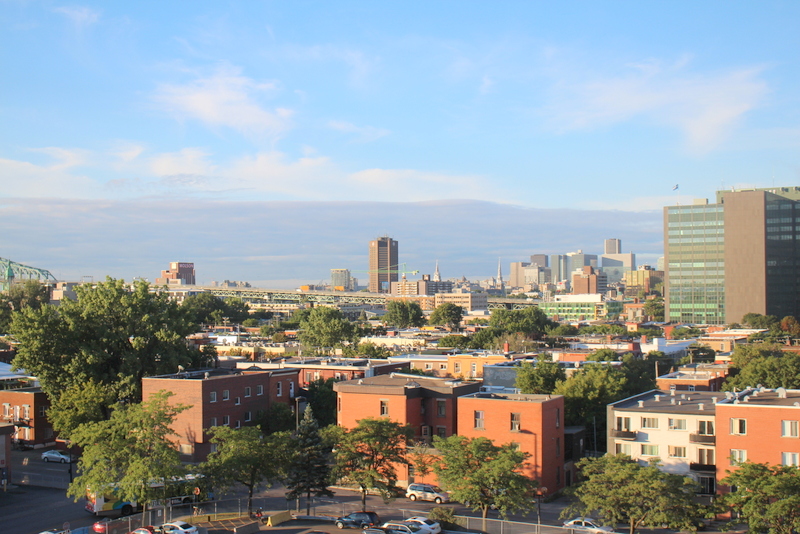Two human rights activists are currently on trial for protesting the Tungkum Limited gold mine in Loei Province of Thailand.
Charges of “disturbing the peaceful possession or trespassing were made against Surapun Rujichaiyavat, 44, and Pornthip Hongchai, 46 for erecting green flags at the site. The two also used lime powder to write, “Close the Mine and Rehabilitate” on the ground at the open-pit mine on May 14, 2015.
“Fundamental freedoms are at stake here. Basic rights should not be subjugated in response to harmless acts,” said Amy Smith, Executive Director of Fortify Rights. “Environmental defenders in Loei are all too familiar with facing legal actions for protesting the gold mine. This is yet one more case in a string of lawsuits.”
A company representative filed an initial complaint against the protesters in May of 2015 at a local police station.
Rujichaiyavat and Hongchai are members of Khon Rak Ban Kerd Group (KRBKG), a community-based group formed by villagers from six communities surrounding the gold mine in the Wang Sa Pung District, Loei Province. The group advocates for environmental protections and has protested for years against the local gold mining operation.
This is the fifth lawsuit that Tungkum Ltd. has brought or initiated against human rights defender Pornthip Hongchai, one of the two defendants in this case.
“I’m tired because there are several lawsuits brought against the villagers. It wastes time that we would spend making a living,” Pornthip Hongchai told Fortify Rights. “But no matter how tired we are, we cannot retreat. We are working to protect our communities from pollution so that the generations born after us will have access to clean water, clean rice, and clean air, free from pollution.”
In November of 2015, Tungkum filed criminal defamation complaints against a 15-year-old Thai schoolgirl and the Thai Public Broadcasting Service (Thai PBS) for their respective involvement in producing a news clip that mentioned alleged environmental impacts of the mine. One out of two complaints against the schoolgirl was dropped, and on October 3 and 10, the Bangkok Criminal Court completed preliminary hearings to consider the merits of the company’s complaints against Thai PBS and will issue a decision on whether the case will proceed to trial on November 16.
A company representative filed an initial complaint against the protesters in May of 2015 at a local police station.
Rujichaiyavat and Hongchai are members of Khon Rak Ban Kerd Group (KRBKG), a community-based group formed by villagers from six communities surrounding the gold mine in the Wang Sa Pung District, Loei Province. The group advocates for environmental protections and has protested for years against the local gold mining operation.
This is the fifth lawsuit that Tungkum Ltd. has brought or initiated against human rights defender Pornthip Hongchai, one of the two defendants in this case.
“I’m tired because there are several lawsuits brought against the villagers. It wastes time that we would spend making a living,” Pornthip Hongchai told Fortify Rights. “But no matter how tired we are, we cannot retreat. We are working to protect our communities from pollution so that the generations born after us will have access to clean water, clean rice, and clean air, free from pollution.”
In November of 2015, Tungkum filed criminal defamation complaints against a 15-year-old Thai schoolgirl and the Thai Public Broadcasting Service (Thai PBS) for their respective involvement in producing a news clip that mentioned alleged environmental impacts of the mine. One out of two complaints against the schoolgirl was dropped, and on October 3 and 10, the Bangkok Criminal Court completed preliminary hearings to consider the merits of the company’s complaints against Thai PBS and will issue a decision on whether the case will proceed to trial on November 16.
The trial was expected to last two days and a verdict is not expected until late next month.
________________________________________
The United Nations now says there are 1.4 million people in need of assistance in Haiti that includes an urgent and immediate call for over 500,000 people.
The human rights group Rights Action has issued a statement cautioning the distribution of aid by foreign military and NGOs.
“This supposed aid may end up undermining local food production, sabotaging pending elections, reinforcing the foreign military intervention in the country, and generally subverting Haiti’s recent moves to regain its sovereignty.”
The human rights group pointed to the 2010 earthquake that measured 7.0 in magnitude when the United States deployed 22,000 troops to Haiti. This act of hostility as it was named by a number of human rights groups, was carried out without the authorization of the national government of Haiti as it took over the international airport in Port-au-Prince and militarized the humanitarian response.
_________________________________________
The Montreal Protocol talks in the Rwandan capital Kigali are being well received by environmental groups as countries agree to phase down “super greenhouse gases” also known as hydrofluorocarbons (HFCs). This announcement comes days before COP22 annual climate talks begin in Marrakesh, Morocco.
The details include a timetable for countries to “freeze” and reduce production of HFCs. The timetable begins in 2019 with “developed” countries cutting HFC production and continues to 2024 where “developing countries such as Argentina, Brazil, China, and South Africa (about 100 countries) have agreed to freeze HFC production and use.
Gulf States, India, and Pakistan have agreed to cut HFCs at a slower rate.
